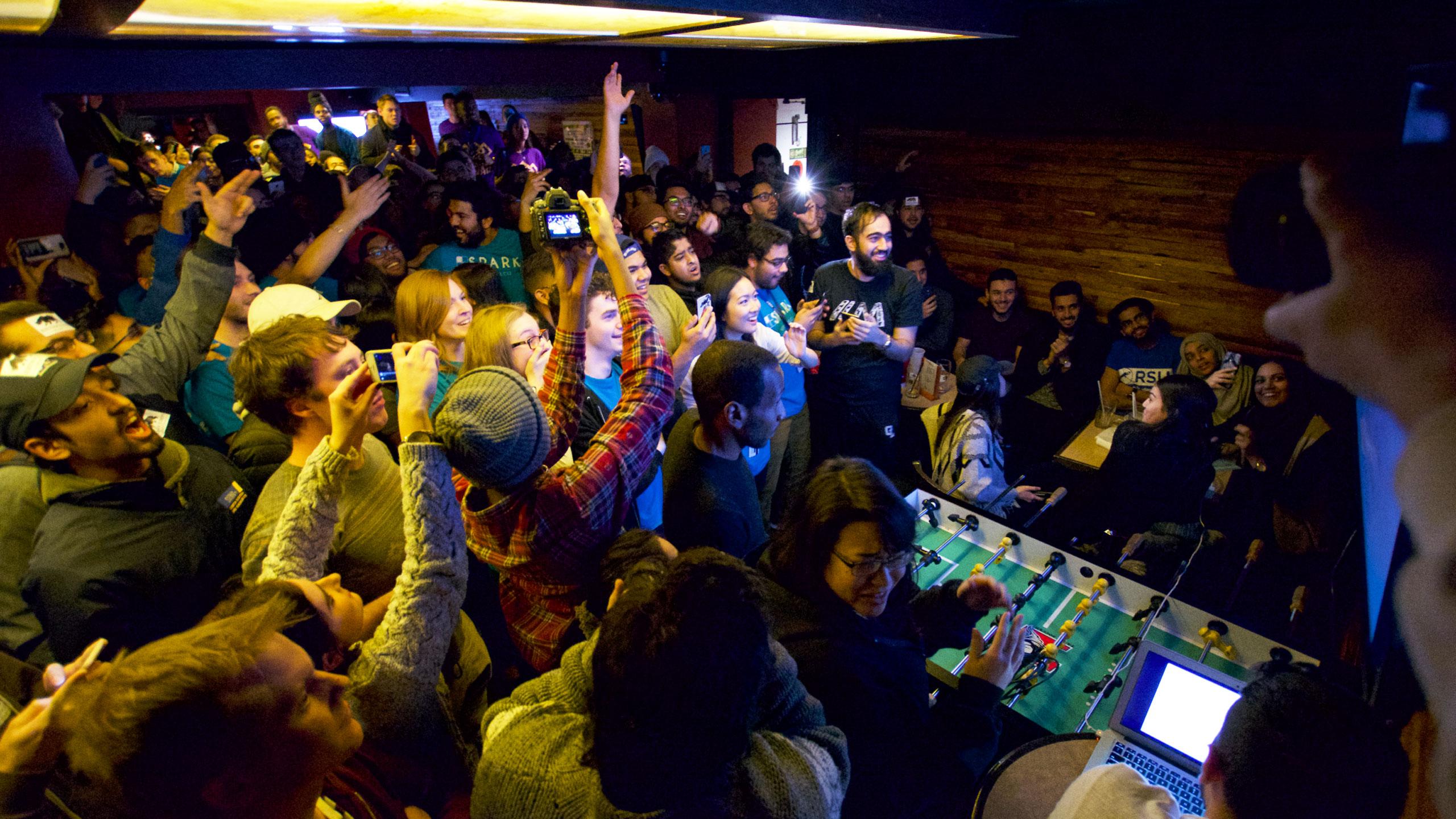By Jacob Dubé
At the end of every Ryerson Students’ Union (RSU) election, the Chief Returning Officer (CRO) publishes a report recapping the entire process and providing advice for the coming years. This year’s report, written by CRO Amiri Dear, was approved by the RSU board of directors on March 2. Here’s a recap of what’s in it:
Complaints
According to the report, all of the slates that actively campaigned in the election received demerit points—if a candidate receives 10 or more, they are disqualified. It also touched on a specific instance where two candidates issued harassment complaints against each other.
On Feb. 6, Ted Rogers School of Management (TRSM) Spark candidate Ahmed Abdul reportedly filmed Ohana presidential candidate and current RSU vice-president operations Neal Muthreja campaigning in a computer lab, which Abdul believed to be against the rules. He also filed a harassment complaint against Muthreja, reporting he did not feel safe while filming him. Muthreja and another witness also filed harassment complaints against Abdul.
In an email to both candidates, Dear said that Abdul was allowed to record possible infractions, but “done in a respectful manner that avoids confrontation.”
The punishment for harassment is five demerit points, but Dear opted to give each candidate 2.5.
“I have no doubt that both parties are to blame for making the other feel uncomfortable and potentially harassed.”
The disqualification of Razi Syed
Syed, a TRSM spark candidate, was disqualified for harassment and committing “actions in bad faith.”
The Ohana slate submitted a complaint against Syed that he was harassing the performers of their campaign song and coercing them into withdrawing their support for the track.
According to the report, on Feb. 1, the CRO received an email from one of the song’s artists, Ali G, stating they never agreed for it to be used for a political campaign and requesting immediate action be taken. The email was also cc’d to Ram Ganesh, Team Spark’s campaign manager.
The next day, another one of the track’s artists, Amar Chhina, sent Dear an email saying Syed had asked him to make a statement saying he did not know the purpose of the song and how it was going to be used. According to the report, Chhina refused Syed’s request, saying it wasn’t true.
Syed was then brought into the CRO’s office, accompanied by Ganesh, incoming vice-president education Daniel Lis and presidential candidate and current vice-president student life Harman Singh. When asked if Syed ever had any contact with the performers of Ohana’s song, he said no.
Dear wrote that though Syed denied contacting the artists, he had obtained screenshots of conversations and other proof that indicated Syed had reached out. He concluded that Syed’s actions “were designed to undermine and sabotage Team Ohana’s campaign,” were done with “malicious intent,” and that “Mr. Syed’s actions “show bad faith and are not in keeping with the spirit of clean elections.”
6 Fest refund story causes tensions
Dear also pointed to The Eyeopener‘s story about the 6 Fest refund money being transferred into RSU executives’ personal accounts as an issue that “tainted the campaign and led to tensions that persisted throughout the election period.” Dear wrote he is “sure that it may have influenced voters.” He said the focus of the article appeared to be Singh, and he encouraged him to “examine his legal options.”
Faculty of Engineering and Architectural Science director coin flip
Ohana candidate Sameer Naumani and Spark candidate Macarena Soncini both received 398 votes in the election. According to the bylaws, the CRO must decide the winner with a coin toss, which Naumani ultimately won. Dear writes that though a coin toss seems fair because both candidates have a 50 per cent chance of winning, he doesn’t believe that it “effectively awards the candidates for their hard work nor does it provide the electorate with the ability to make their voice definitively heard.”
Dear advised that the bylaw be amended “as quickly as possible” to replace the coin toss with a run-off election, which he says is more equitable.













Leave a Reply